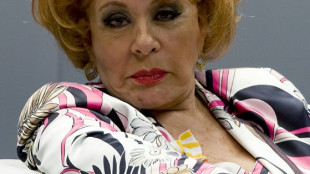

Impunity endemic in S. Sudan ahead of planned elections: UN body
Armed conflict, violence and entrenched impunity persist in South Sudan as it prepares to hold its first elections, the UN commission investigating human rights in the country said Friday.
The world's newest nation has struggled to find its footing since gaining independence from Sudan in 2011, battling violence, endemic poverty and natural disasters.
"As South Sudan prepares to end its fragile political transition and to hold its first elections in December 2024, armed conflict and gross human rights violations persist," the commission said in its annual report to the UN Human Rights Council.
"Millions of people have been displaced, deprived, traumatised, and continue to live in fear," said the report covering events in 2023.
As South Sudan's transition neared completion, the risk of further mass violence and accompanying gross human rights violations remained ever-present.
"Patterns of violence, violations and entrenched impunity continue to blight the lives of an extremely vulnerable population. The already-dire humanitarian situation will deteriorate further," the report concluded.
The commission, established by the Rights Council in 2016, is charged with gathering evidence on alleged gross rights violations and related crimes, with a view to ending impunity.
- 'Unacceptable situation' -
One of the poorest countries on the planet despite large oil reserves, South Sudan has spent almost half of its life as a nation at war, and has also endured persistent natural disasters, hunger, economic meltdown and communal conflict.
The commission saw a risk of further gross violations if the factors behind the conflict were not addressed.
Unchecked mass violence and ongoing repression threaten the prospects of durable peace, and must be urgently addressed, the report said.
"Our investigations again found an absolutely unacceptable situation in South Sudan, whereby families and communities are devastated by human rights violations and abuses by armed forces, militias and state institutions acting with impunity," said commission chair Yasmin Sooka.
"South Sudan's immediate and long-term future hinges on political leaders finally making good on their commitments to bring peace, and reverse cyclical human rights violations."
The report said the country's first elections face severe political and logistical challenges.
It warned that while the vote could be moment of great opportunity, it could also bring danger, as electoral grievances may trigger new violence, or compound existing conflicts.
South Sudan's Justice Minister Ruben Madol Arol told the council the report was "deplorable".
It contains "unverified and unrealistic alleged human rights violations which include discrimination against women, inequality, sexual slavery and displacement of millions", he said.
"This description of events does not match the current improvement of the security situation in the country."
F.Koch--MP




